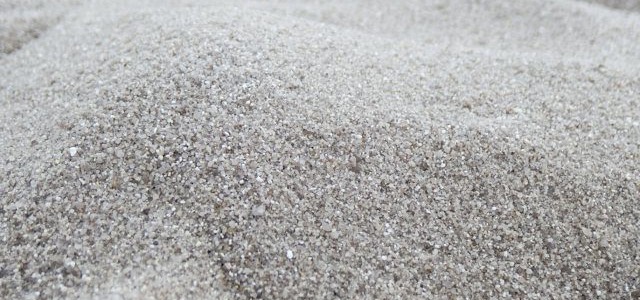
For the past 10 to 20 years, Ipe has been considered the top natural wood choice for high-end decks, boardwalks, and other outdoor wood projects. Its durability, strength, and rot-resistance are well-documented. But recently, Ipe has begun to fall out of favor as sustainability has become more top-of-mind for homeowners and landscape architects. This trend will take a while to really go mainstream, as there is a well-established industry of loggers, importers, and distributors.
In the meantime, another drawback to Ipe is quickly becoming mainstream, and we are hearing about it from contractors and DIY deck-builders alike. It comes down to something remarkably tiny but quite harmful, maybe even more immediately harmful than asbestos. What makes Ipe and other tropical hardwoods so rot-resistant is the combination of harmful chemicals (lapachol, deoxylapachol and lapachenole) embedded in the wood and the high content of Silica (Silicon Dioxide or SiO2), a material that causes a multitude of health and safety problems: OSHA Report on Dangers of Silica .
How Does Ipe Get Silica?
Ipe (collectively the dozens of scientific species marketed as Ipe) grows in the Amazon basin. Even though the tropical climate is conducive to many species growing in the Rainforest, the soil doesn’t actually help fertilize many tree species. Ipe trees get fertilization from 2 sources: ash from fires (unfortunately this is often when other “waste trees” are burned by loggers to clear room to access Ipe trees); or from sand blowing across the Atlantic from the Sahara desert.
This Sahara sand is primarily comprised of Silica, which provides phosphorus to the Rainforest trees that grow slowly across hundreds and thousands of years. In essence, the Sahara and the Rainforest work together just like fertilizer and a garden bed. And as a mineral, Silica is chemically inert, which helps give Ipe (and other tropical hardwoods) its rot resistant characteristics. But that’s where the benefits end and the problems begin.
Why Does This Matter?
Because of the sand-like nature of Silica, Ipe dulls saw blades and drill bits. Contractors have to constantly replace expensive hardware, even when using carbide tips. This is the tamest of the issues, though. It just so happens that Silica and chemicals embedded in Ipe are extremely toxic. And now Silica and the other chemicals in the tropical hardwood are becoming known to cause health problems. When you breathe the dust from sawing, it can cause immediate sickness. Contractors are advised to use protective clothing, including face masks, and to shower immediately after working with tropical hardwoods.
Also, Ipe splinters cause immediate infection. A small splinter in your finger will almost immediately fester up. There are multiple reported hospital visits due to Ipe sawdust and splinters . If you are a homeowner considering Ipe, you need to ask your contractor how they will capture and dispose of the sawdust, which is practically impossible. The toxic Silica and particles from Ipe is so fine that it becomes part of the air you breathe. And after construction, you and your family will be walking on it, hoping for no splintering or leftover sawdust on your property.
Studies on this are few and far between and conclude that further testing is needed. But why has further testing not been done and has the tropical hardwood industry held testing back? Just look at how this study concludes on a worker who developed asthma: Ipe Saw Dust Study 2005
“This is the first report of OA caused by exposure to Ipe wood dusts. As it is a widely used timber in South and Central America, more studies are needed to identify the precise mechanism of this asthma.”
And then this reference to a 1936 report:
“Descriptions of human deaths and worm elimination from swallowing Ipe dusts are found in the past (Freise FW, 1936, cited in the Botanical Dermatology Database).”
Safer Alternatives…
Does all of this mean that all rot-resistant woods are harmful to your health? No. As it turns out you don’t need toxic tropical hardwoods to have a great wood product. Our favorite wood, Black Locust, gets its rot-resistance naturally through the closed-grain cell structure that prevents moisture from penetrating the wood.
At some point when the safety issues become known mainstream and more testing is done (in addition to the environmental impact of taking centuries-old trees out of the Rainforest), public pressure will outweigh the lobbying power of the tropical hardwood lumber industry. We may see an all-out ban on Ipe and tropical hardwoods in the United States. In the meantime, sustainability-minded homeowners and professionals are already realizing that products like Black Locust are safer alternatives — strong, durable and rot-resistant — in addition to their sustainability advantages over tropical hardwoods.

